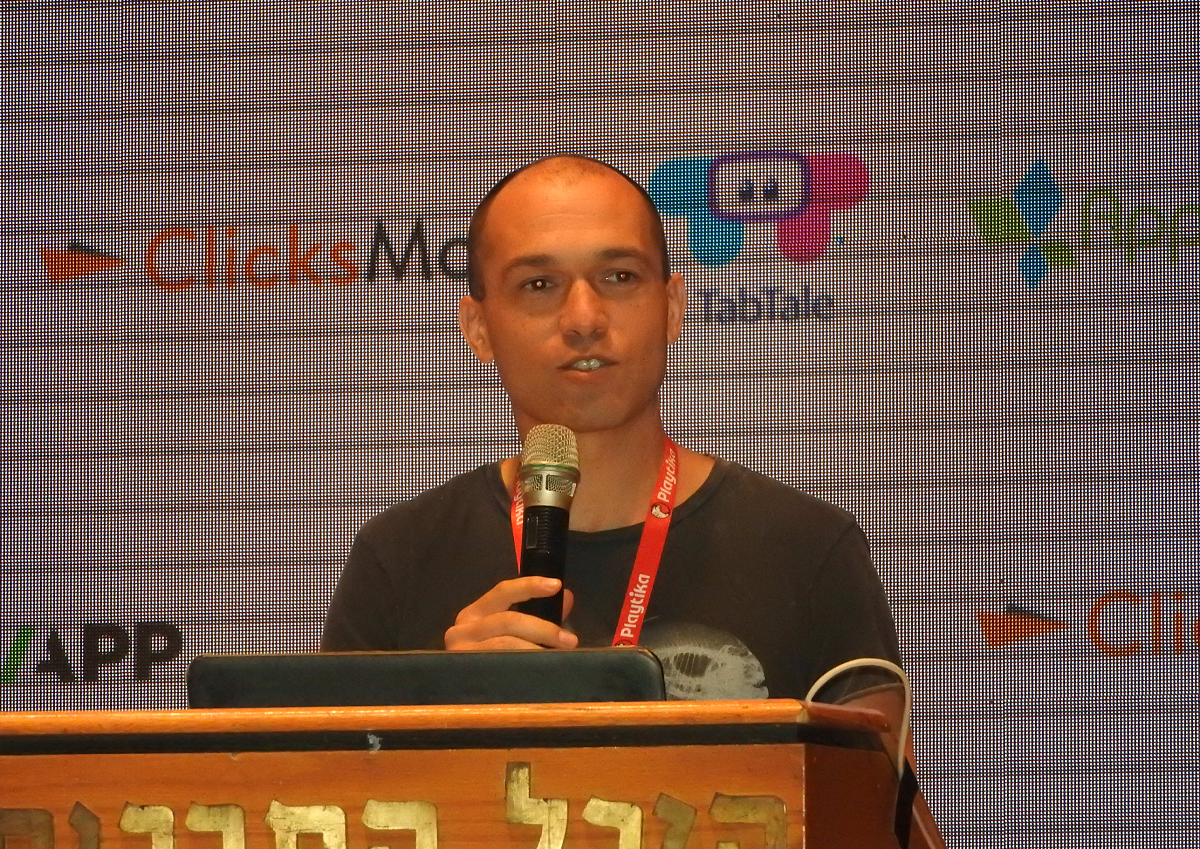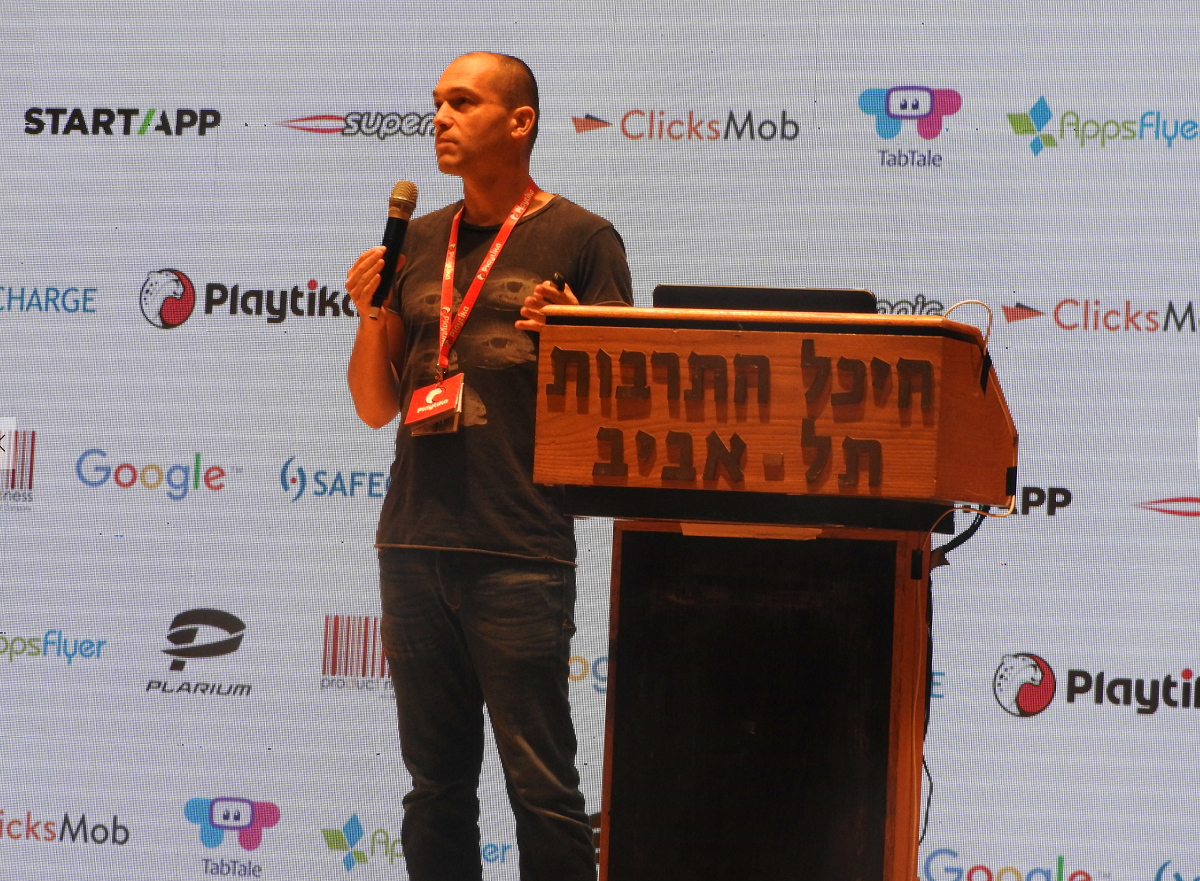The organizers of Casual Connect Tel Aviv paid my way to Israel. Our coverage remains objective.
TEL AVIV, Israel — Investors are still afraid of investing in games because they don’t know how to pick hits. But one Israeli investor said that he gets over that problem by looking at both the potential of games and finding the right teams that can repeat what they’ve done before.
Despite the risks of investing in entertainment companies, Gigi Levy-Weiss — the head of the NFX Guild accelerator, which makes investments in game and tech companies — has jumped on game investments in the past. He invested in successful Israeli game companies Plarium and Playtika.
The latter company is now owned by Caesars and has become the world’s largest social casino game company, according to market analyst Eilers Research. Caesars bought Slotomania developer Playtika for a valuation of $150 million in 2011. That deal helped trigger the social-casino game frenzy in Israel, and now the overall Israeli game sector has expanded to 200 game companies across social casino, marketing tech, educational games, and online gambling.
“When you get it right, nothing grows as fast,” said Levy-Weiss, speaking at the Casual Connect Tel Aviv event in Israel.
A lot of venture capitalists have pulled back from games, or they make a single game investment to reduce their exposure to being wrong, he said. Digi-Capital, a tech advisory firm, said this week that game deals have dropped dramatically this year. In the first nine months of the year, mergers and acquisitions (and initial public offerings) were down 82 percent from a year ago, and game investments were 35 percent below a year ago. IPOs evaporated.
“Hopefully, there will be more money flowing into the industry because it is critical to growth,” he said.
Levy-Weiss formed his NFX Guild accelerator earlier this year, but he is an industry veteran as the former CEO of 888 Holdings, a big real-money online gambling company.
Levy-Weiss went on to delineate the characteristics of a successful game company and what he looks for when he is funding companies.
It’s a very short path to market. There’s a growing talent pool. Are there any rules to help you succeed?
“There are no guarantees, but there are critical rules to follow to get above the noise,” Levy-Weiss said.
He said there is no such thing as “too good people.” A company is a sum of its people. You have to only recruit the best to work with you.
The stars act on commitments, get the job done, always do more, they care, love what they do, have fire in their eyes, and they like data, he said. You should hire for attitude and skill, and hire up, or hire people above the minimum that you need. Build a team rather than a group of individuals, he said. The top people have to recruit the top people.
“Don’t be afraid to recruit different and unique people,” he said. “Who will bring the innovative solutions? Who is going to think differently?”
Having talent mitigates the risk of a game company. Those risks are plentiful. They include the rarity of hits, fierce competition, growing user acquisition costs, the lack of inexpensive viral channels, and low exits for multiples, said Levy-Weiss.
Levy-Weiss also said there is no such thing as moving too fast.
“Speed is the No. 1 competitive advantage of a startup,” Levy-Weiss said. “If you end up not being fast, you will lose to the big guys. You can beat a brand chess master if you move twice for every move he makes.”
Levy wants to see game prototypes within a few months, not 18 months. If it takes 18 months to get a prototype, don’t start, he said. He prefers speed to perfection. Don’t overthink because it slows you down. At the same time, you have to keep production quality high.
There’s always some kind of reference for a game, like previous games in a genre, such as Clash of Clans or Bejeweled.
“Every good game has a reference,” he said. “You have to analyze and find out what worked and what didn’t.” If there isn’t a direct reference, you may find one for a core game loop. If you can’t find one, you may have something original. Or you may have to prototype it carefully to make sure it works.
You have to respond to your customers and “find your love,” meaning you have to tweak the game to get it right for consumers. He noted that Zengaming had to experiment for a while before it found success with its network of esports participants.
“If your core game loop is not working, it won’t just suddenly start,” Levi-Weiss said. “If you are not sure you are a winner, it’s probably not.”
So if you don’t have a hit, make smart decisions about it.
“Avoid analysis paralysis,” he said.
He said you have to build a game to making onboarding easy, get people to return every day, design it for monetization from the beginning, and play your own game like crazy.
“It’s an amazing time to be a game entrepreneur,” he said. “Have fun, because it’s all about fun.”
VentureBeat's mission is to be a digital town square for technical decision-makers to gain knowledge about transformative enterprise technology and transact. Learn More



